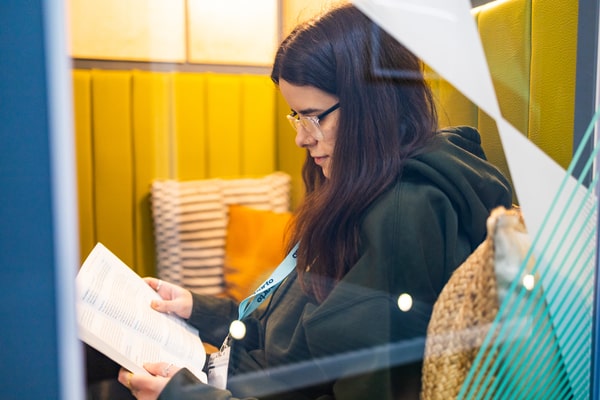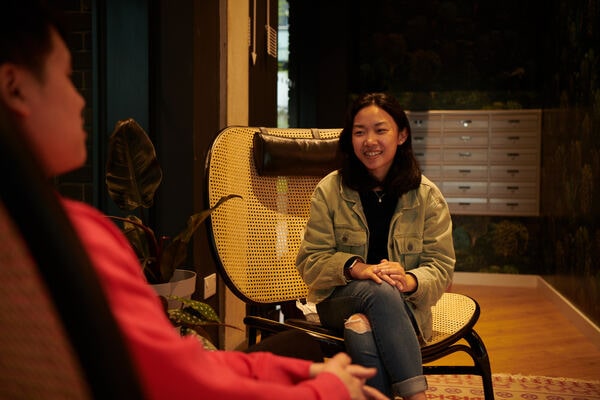So, you've just found out you're neurodivergent, now what?
Okay. So you’ve just found out that you’re neurodivergent. What happens now?
In this article, I’m going to talk you through what happens after you get your diagnosis (whether that’s autism, ADHD or another neurodivergence), explore how I felt when I was diagnosed, and offer some tips to anyone who’s not sure what to do next.
Note: this article is primarily aimed at people who have just received a diagnosis from a medical professional, but some of the advice is hopefully helpful for those who are still exploring and questioning their potential neurodivergence too.
Tip #1: Take your time
You’ve just found out something huge. And whether or not it’s something you’ve been thinking about for a long time, getting the actual diagnosis can still feel like a really big change. It can affect the ways you think about the world and your own identity.
Unfortunately, we neurodivergent folks often aren’t the biggest fans of change (I’m definitely not!), so things might be feeling really overwhelming right now. When I was diagnosed as autistic, I’d been identifying as autistic in my head for about two years before I got the official ‘Yay! You’re autistic!’ certificate. But, when that moment arrived, it still felt like I had to re-evaluate absolutely everything that had ever happened to me.
Just because you have your diagnosis now, it doesn’t mean you have to immediately jump into anything or make lots of changes. It’s perfectly okay to take your time and to not think too deeply about things. I made the mistake of going too deep too quickly and it left me feeling really overwhelmed. Take your time and remember to be gentle with yourself.

Tip #2: Do some research
You might have done lots of research before you got to the point of diagnosis, but this could now be a good time to dig a bit deeper. (If you want to, that is - remember what I said about taking your time!) There’s so much great info out there nowadays about all the different ways neurodivergence might impact you, all the positive things being neurodivergent might add to your life, as well as lots of advice that might help make your life easier in ways that you hadn’t thought about.
I did a lot of research both before and after getting my diagnosis. I read books, searched for autism-specific hashtags online, read articles, watched documentaries – the whole shebang. I particularly focused on finding resources written by people who were autistic themselves and listening to their experiences. This helped me to deconstruct some of the negative attitudes I hadn’t even realised I’d been holding, and to learn how to accept and understand myself in new ways.

Tip #3: Talk about it
All right, you now know this really cool new thing about yourself, but do you want to tell anyone else about it too?
You absolutely don’t owe anyone this information. But if you do think it might help, then now could be a great time to tell the people in your life. For example, once I got my diagnosis, I told my family and friends who didn’t already know. I suggested some resources they might want to check out to understand me better, and I also let my employer know.
As a neurodivergent person, you’re entitled to accommodations to help you out in the workplace or place of study. So if you feel comfortable sharing your diagnosis with your employer or uni staff (or asking someone else to do that for you), then it might be a really useful thing for them to know. This way, you can start having those discussions about how they can support you better.
Also, just as a reminder – it shouldn’t be your sole responsibility to educate the people around you. Sometimes it feels easier to, but be careful you’re not doing too much and exhausting yourself.

Tip #4: Find your people
It might be a good idea for you to try and find some people who feel the same way as you or experience similar things. If you already have these people around you, that’s amazing! I’m so glad! But if that’s not the case for you, then try not to feel too disheartened. Just because you don’t currently have people in your life that you feel like you can relate to, doesn’t mean those people aren’t out there.
There are lots of communities out there waiting for you - if or when you feel ready to join them. When I was first diagnosed, I connected with lots of people via hashtags created so that autistic people could share their first-person experiences. I also researched groups in my local area, looked on charity forums, went to autism-specific events, and much more.
(Obviously, always be careful when exploring online and take the necessary precautions, like not sharing personal information.)

Tip #5: Celebrate!
I personally wish I’d done this a bit more. I was diagnosed ‘officially’ when I was 20, and my first referral to an autism service was sent out when I was eighteen. So, it was a really long wait. It then felt quite anticlimactic to just have a video call where a doctor confirmed something I already knew.
But, it is still a big, important moment. You’ll now hopefully be able to access more support, and learn how to understand yourself even better. You may also have been waiting for this understanding for a really long time, and if you want to celebrate, to throw yourself a party, then do that! It is true that there can be lots of really tricky things about being neurodivergent in a world that’s often not accessible to us. But there are lots of positives too that deserve to be acknowledged and, yes, celebrated. When my friend was diagnosed earlier in the year, I ordered a personalised cookie to be delivered to their house that read ‘Congrats on the autism!’ Which a) was delicious, and b) was a nice, funny way to make sure my friend knew this was definitely a positive thing.

To wrap up – you might have only just found out that you’re neurodivergent, but you have always been it. Nothing has really changed, except you now have the chance to learn more about your behaviour, your feelings, and the way you interact with the world. Also…
Welcome! You’re now part of a really cool club of people. I hope you feel able to celebrate this and accept yourself for the amazing, unique person that you are.

